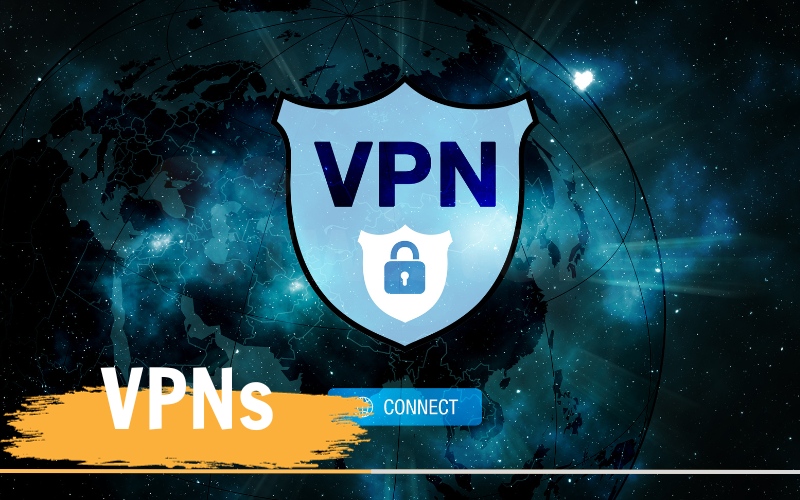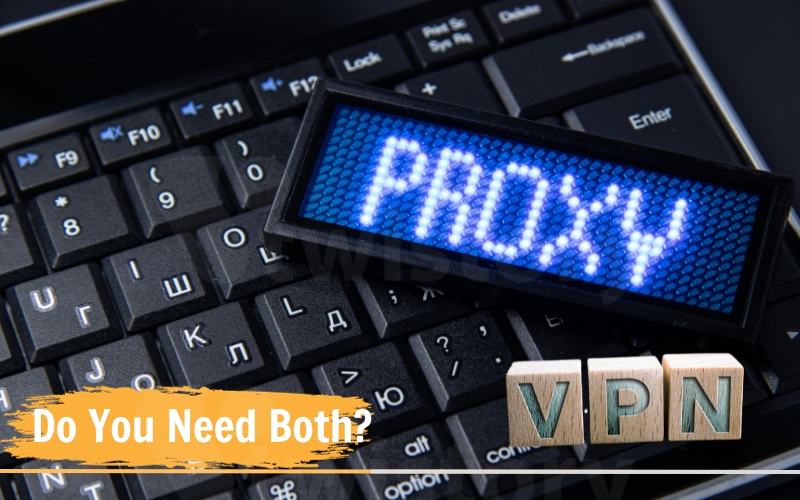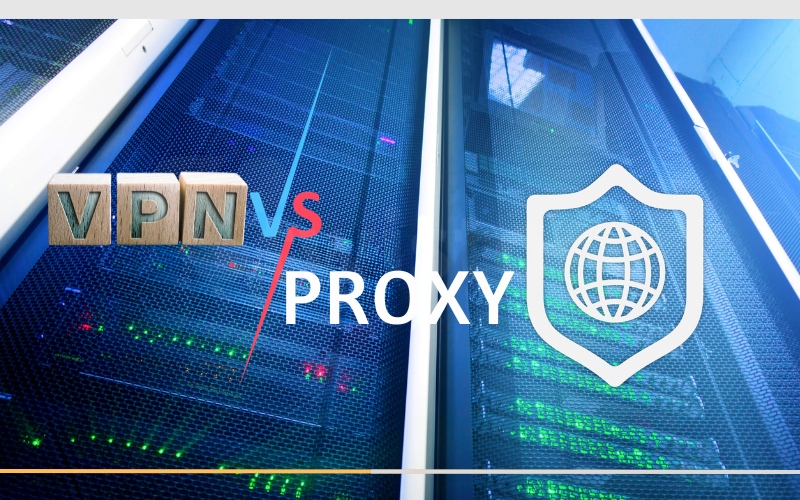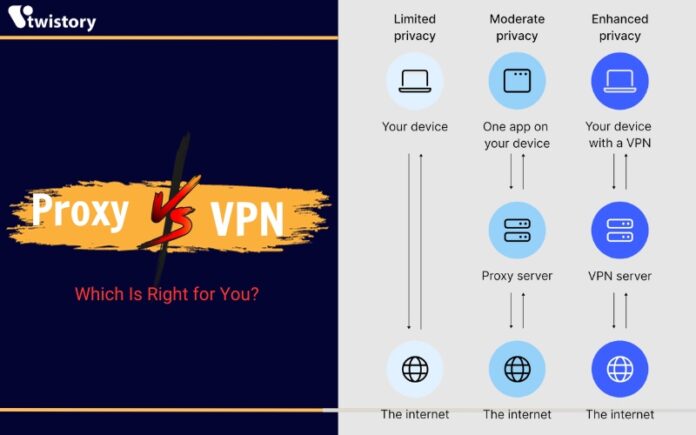In today’s digital age, safeguarding our online privacy is of paramount importance. As such, understanding the differences between a VPN and a proxy server is crucial for anyone looking to enhance their internet security. Both tools can help you change your IP address which can also protect your online activities, but they do so in different ways. In this article, Twistroy.net will delve into a comparative analysis of VPNs and proxy servers, helping you make an informed decision about which is the best solution for your needs.
What Are Proxy Servers and VPNs?
To understand the essentials, let’s define what a VPN is and what a proxy server is.
VPNs
VPNs, short for Virtual Private Networks, secure all of a user’s online actions and their device’s IP address by encrypting the data. They usually come as an app or a browser add-on. For a deeper understanding of VPNs, you can check out our comprehensive VPN guide.

Proxy Servers
A proxy server serves as an intermediary between your device and the internet. It’s a server that hides your device’s IP address but doesn’t cover all your online activity. It’s typically specific to a single website or app, not multiple services. Let’s look at the most common types of proxy servers:

- SOCKS5 is particularly suitable for activities such as peer-to-peer file sharing, streaming videos, and playing online games, although it’s generally slower than the next type, HTTP.
- HTTP proxies are widely used for visiting websites that are restricted in certain locations, making them a handy tool for those in countries with heavy internet censorship.
- Transparent proxies are different; they could be replaced with “can effectively restrict access to certain websites. Ever wondered why you can’t access social media on library computers? It’s likely due to a transparent proxy server set up to block certain sites. Schools and workplaces often use these to control internet usage.
Heads up: If you’re dealing with a transparent proxy that blocks access to websites, a VPN might be your ticket to unrestricted internet access.
>>Explore more: What Is Proxy Server? How Does It Work & What Are Its Benefits?
Proxy vs. VPN
Choosing between a proxy server and a VPN really depends on what you’re looking for, but you might find a VPN to be generally more useful. Here’s a straightforward comparison to explain this:
| Feature | Proxy | VPN |
| Cost | Often free | Typically requires payment |
| Usage Limit | Single use at a time | Multiple uses simultaneously |
| IP Address Encryption | Limited | Yes |
| Web Activity Encryption | Limited | Yes |
| Risk of Selling User Data | Higher likelihood | Lower likelihood |
| Scope of Coverage | Only one site or app | Every site and app |
| Good for Streaming and Gaming | Yes | Yes |
| Bypassing Geo-Restrictions | Yes | Yes |
| Impact on Browsing Speed | Possible slowdown | Possible slowdown |
Key Differences
Let’s dive into the key distinctions between VPNs and proxy servers.
- Encryption: The standout difference is that VPNs provide encryption for all your online actions, including the sites you visit, keeping your entire web presence incognito. Proxy servers, however, only disguise your IP address without encrypting your internet activities.
- Data privacy: Many proxy servers are free and, to offset this, they might sell your data to third parties like advertisers. In contrast, most VPNs require payment but prioritize your privacy by not logging or selling your data.
- Cost: There’s no shortage of free VPNs, but they often have usage caps, limited server options, and other restrictions. Investing in a paid VPN is usually worth it for those who need robust service. On the flip side, most proxy servers are free to use.
- Here’s a helpful hint: Look out for VPN discounts if you’re a student. They can slash prices from 15 to 80 percent, making it more affordable to secure your online activities.
- Coverage: VPNs offer comprehensive coverage, securing all of your online activities across any website or app. Proxy servers, however, are limited to concealing the activities of only one website or app at a time.
Key Similarities
When it comes to what VPNs and proxy servers have in common, here are the main points.
- Hiding your IP address: Both VPNs and proxy servers are effective at hiding your device’s IP address from websites and online services. This can be useful for a variety of purposes, such as protecting your privacy, bypassing geo-restrictions, or accessing content that is not normally available in your region.
- Streaming and gaming: Both VPNs and proxies can be used for streaming media and gaming. However, SOCKS5 proxies are generally better suited for these activities due to their compatibility with various protocols.
- Speed impact: Both VPNs and proxies can potentially slow down your internet connection. However, the impact is usually more noticeable with proxies than with VPNs.
- Overcoming restrictions: Both VPNs and proxies can be used to bypass geo-restrictions and access content that is not normally available in your region.
So, while there are differences in privacy and coverage, both VPNs and proxies share these core capabilities.
Do You Need Both?
In other words, you don’t need to use a proxy server if you’re already using a VPN. A VPN offers all the benefits of a proxy server, plus additional security and privacy features.

However, if you’re encountering a transparent proxy that’s blocking access to specific websites, a VPN could help you get around those blocks. A transparent proxy is a type of proxy server that doesn’t encrypt your traffic, so a VPN can provide an additional layer of security and privacy.
Which One Should You Use? How To Choose
Now it’s time to decide: Should you choose a proxy server or a VPN? We’ve looked at the pros and cons of both to give you a complete picture.

Why You Should Use A VPN
Here’s why a VPN might be your best choice:
- Comprehensive protection: A VPN protects your browsing on every website and app you use, not just one or two.
- Secure web browsing: VPNs encrypt all the sites you visit, offering complete privacy, beyond just hiding your IP address.
- Privacy assurance: Unlike proxies, most VPNs keep no records of your internet activity.
- Speed advantage: Typically, VPNs offer quicker internet speeds compared to proxy servers, although this can vary among different VPN providers.
Why You Shouldn’t Use A VPN
Here’s why you might skip a VPN:
- Occasional use: If you only need to change your IP address just once, a proxy server could be more convenient and cost-effective.
- Potential costs: While there are free VPNs or those with trial periods, most reliable VPN services come with a price tag, unlike many proxy servers that are free of charge.
Why You Should Use A Proxy Server
Here’s why opting for a proxy server could be a good move:
- Specific website or app masking: If your goal is simply to mask your IP address for just one website or app, setting up a proxy is straightforward and less hassle than a VPN.
- Free of charge: Proxies often come without any cost, so if you’re looking to save money, a proxy could be the perfect solution.
Why You Shouldn’t Use A Proxy Server
Here are some reasons why a proxy server might not be the best choice:
- Lack of encryption: While a proxy can hide your IP, it doesn’t make your online activities invisible to your Internet Service Provider.
- Privacy concerns: Proxies may track and even sell your browsing habits to advertisers.
- Limited scope: A proxy only covers your tracks on one website or app, which isn’t enough if you’re seeking comprehensive web protection.
Conclusion
In the debate between Proxy vs VPN, the latter emerges as a more comprehensive solution for safeguarding your online privacy. To embark on your journey towards secure browsing, consider exploring our curated list of leading VPN services tailored to diverse requirements. Stay tuned to Twistory for more insightful guidance on making the right choice for your online security needs.


